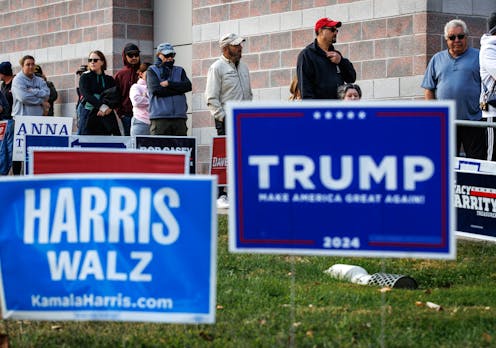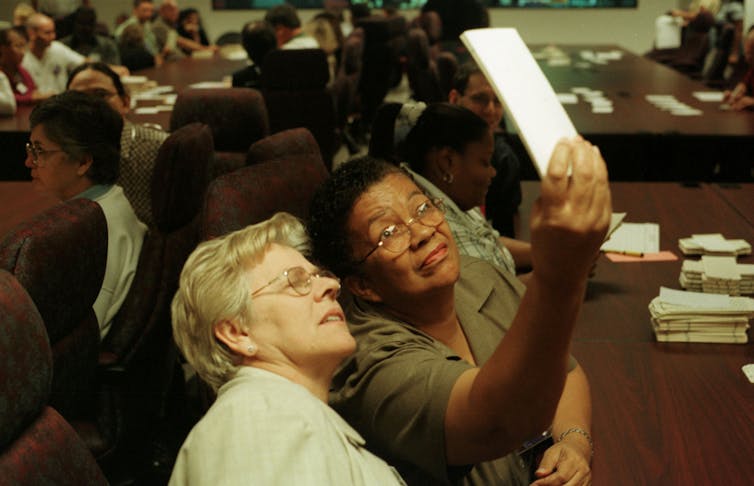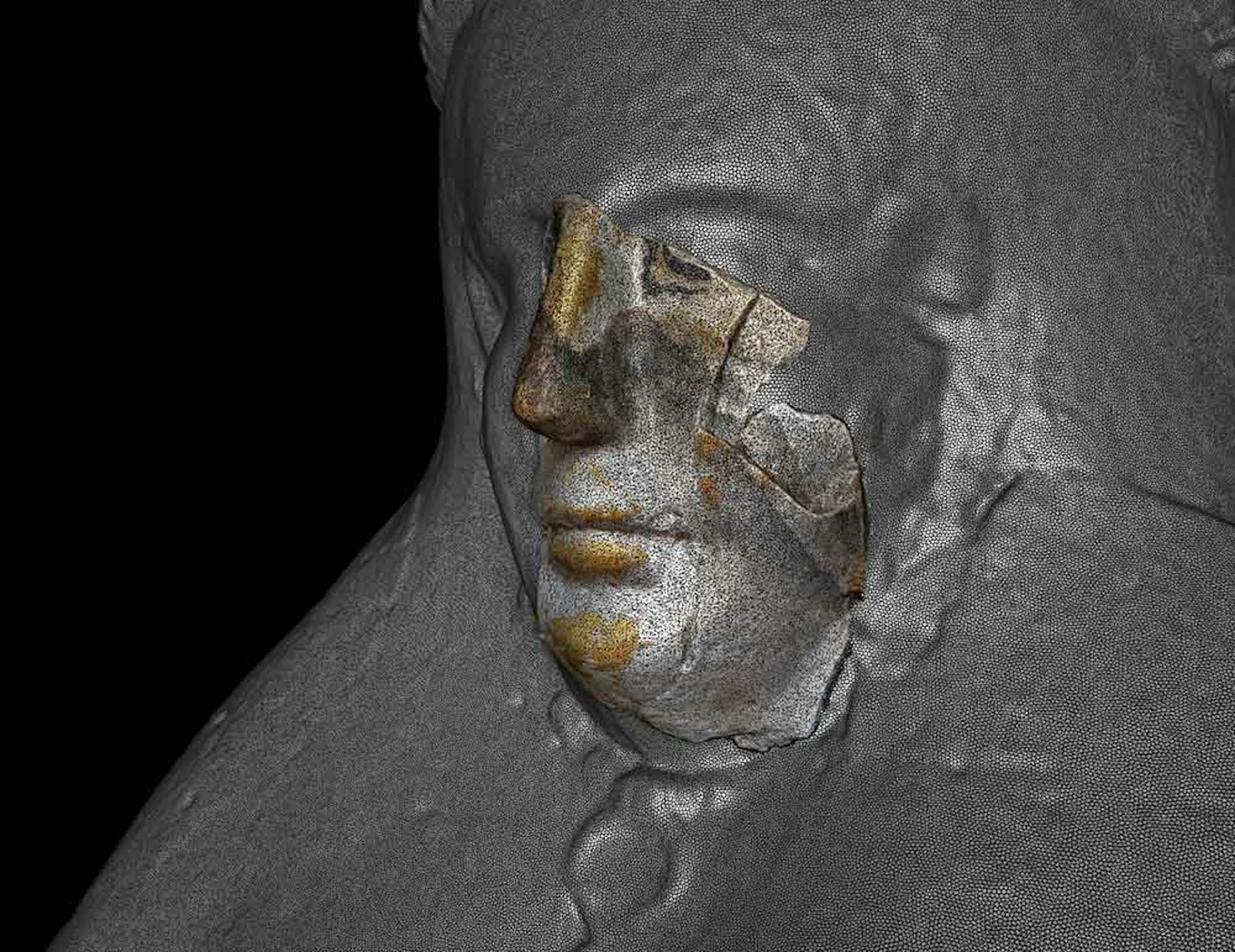2024’s Election Day heads into the history books alongside 1964 and 1980 landslides and 2000’s Bush
In US history, there have been many memorable elections – including those involving quick, decisive wins and others subjected to drawn-out legal battles.

Election nights are always simultaneous moments of triumph and tragedy. One group of voters’ dreams are dashed, while another set of voters see their hopes realized.
Every election is also unique. The United States has had some critical presidential elections that reshaped the way Americans think about politics. This Election Day, Nov. 5, 2024, pitting Democratic presidential nominee Kamala Harris against Republican contender Donald Trump, has not had any notable events so far. But almost every election is worth reading about at some point. There are some big wins, nail-biters and monumental losses that stand out.
Big winners
The 1964 and 1984 presidential elections stand out as quick, overwhelming wins.
President John F. Kennedy’s November 1963 assassination helped set the scene for the 1964 election. Vice President Lyndon B. Johnson immediately ascended to the presidency – and then ran for president with less than a full calendar year as the sitting chief executive.
Johnson’s race against Arizona Republican Sen. Barry Goldwater was fierce. The country faced mounting political tensions with the Soviet Union. Johnson’s famous “Daisy Girl” political ad all but accused Goldwater of potentially launching a nuclear war. And Goldwater, meanwhile, criticized Johnson as being soft on communism.
The New York Times called the election for Johnson by 9 p.m. Eastern Standard Time on election night – though Goldwater waited until the next day to concede.
Goldwater won only six states: his home state of Arizona, as well as Louisiana, South Carolina, Alabama, Mississippi and Georgia.
Twenty years later, President Ronald Reagan ran for reelection in 1984 against Walter Mondale, who previously served as vice president to Jimmy Carter.
Reagan had survived an assassination attempt as president in March 1981 and was fairly popular going into the 1984 election – with an added boost from a strong economy.
Reagan was also 73 years old in 1984, but his sense of humor about his age served him well. He joked about it during the October 1984 presidential debate, saying he wouldn’t exploit Mondale’s “youth and inexperience.”
Reagan quickly won nearly every state, except Mondale’s home state of Minnesota and Washington, D.C.
Mondale conceded just after 11 p.m. EST on election night, while Reagan waited until after midnight to give his victory speech.

A nail-biter
On the other hand, the election of 2000 was a nail-biter that came down to the results of one county in Florida.
Republican George W. Bush, then governor of Texas, and Democrat Al Gore, who was the sitting vice president, were in a very tight race. Green Party politician Ralph Nader was also running as a third-party candidate, drawing votes from the far left.
On election night, Nov. 7, 2000, the vote tally in many states was close – but the closest was in Florida.
All of the major news outlets initially said on the night of the election that Gore had won Florida’s 25 electoral votes, securing him the election.
But as more county tallies came in, the results kept getting closer – and the media outlets shifted, saying that the Florida race was actually undecided.
The final decision would be determined by the vote from Palm Beach County, Florida. Palm Beach County then missed the deadline for counties to certify their votes to the state, two weeks after the election.
This county used an older voting system, the butterfly ballot, to conduct elections.
Voters punched out what looked like a small piece of confetti, called a chad, to indicate their choice on paper ballots. Incomplete punches were called hanging chads, and voter intention became a huge question. There was a lot of legal wrangling, and Republicans eventually appealed to the U.S. Supreme Court in December to halt the ongoing recount.
The Supreme Court, in a split decision, determined that time had run out for additional recounts and handed Florida to Bush, who won the state by a margin of 537 votes on Dec. 12, 2000.

A wild card
Theodore Roosevelt suddenly became president in September 1901 when the sitting president, William McKinley, was assassinated. Roosevelt was reelected in 1904 but decided he wanted to do other things at the end of that four-year term, such as go on a safari. He handpicked his secretary of war, William Howard Taft, as his successor, and Taft won the presidential election in 1908.
But Taft had a very different vision of the presidency, leaving Roosevelt feeling deceived. Roosevelt decided he wanted the presidency back.
A section of the Republican Party broke off and created a separate political party, called the Progressive Party. Roosevelt ran on the Progressive Party ticket in the 1912 election, but dueling support for Taft and Roosevelt split the vote, allowing for Democratic Party candidate Woodrow Wilson to win.
Wilson received more than 6 million popular votes, Roosevelt got about 4 million, and Taft won about 3.5 million. Roosevelt won a moral victory by beating Taft, but his party lost the presidency.
Nov. 5, 2024
Every election night is different. Each one has nuances, excitement and surprises; history will determine how election night 2024 is remembered. The only thing people can be certain of is that they will get some things wrong, some things right, and everyone will either celebrate or despair.
Shannon Bow O'Brien does not work for, consult, own shares in or receive funding from any company or organization that would benefit from this article, and has disclosed no relevant affiliations beyond their academic appointment.
Read These Next
How a largely forgotten Supreme Court case can help prevent an executive branch takeover of federal
An FBI raid on a Georgia elections facility has sparked concern about Trump administration interference…
Do special election results spell doom for Republicans in 2026?
Special election results have anticipated recent midterm outcomes. With Democrats now overperforming,…
3D scanning and shape analysis help archaeologists connect objects across space and time to recover
Digital tools allow archaeologists to identify similarities between fragments and artifacts and potentially…






